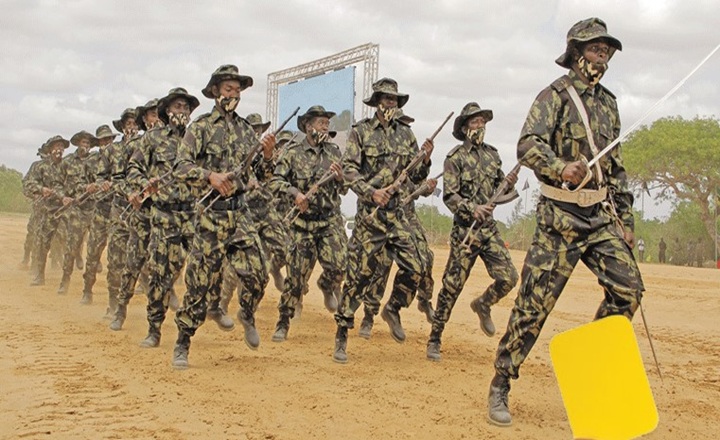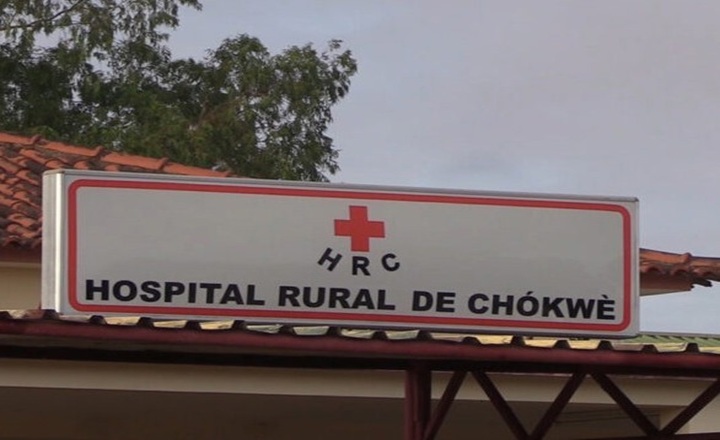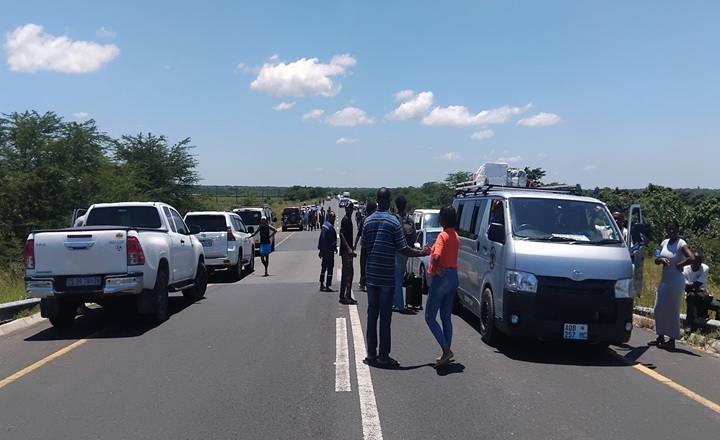
Editorial Yellow Card to the Defense and Security Forces, for their complicit silence regarding the selective murders of Mozambican citizens, many for thinking differently and others for knowing more than they should

The silence that hangs over Mozambique regarding the deaths and disappearances of prominent figures, journalists, law enforcement officials, and members of the political opposition is deafening. This is not simply a lack of words, but the cruelest manifestation of institutional complicity and the failure of a state that should protect the lives of its citizens. The Ministry of the Interior, responsible for ensuring security and public order, cannot continue to take refuge in this silence. It must account for the succession of episodes that, more than mere crimes, reflect the normalization of barbarity and the entrenchment of practices that call into question the very idea of democracy and the rule of law.
Among the most egregious cases is the murder of Elvino Dias and Paulo Guambe, both members of opposition parties who fell cruelly and whose killers were likely the very people who should have protected them. They were killed not only as individuals, but as a clear demonstration that democracy is still insufficient to allow people to feel free to think independently and embrace projects that best align with their aspirations and ideals. Nor can we forget the sudden disappearance of journalist Arlindo Chissale, who was reportedly last seen at the hands of the FDS, whose death, even though unconfirmed, appears to have been the last resort of this land's executioners. The death of a Scribe represents, in the deepest sense, the failure of democracy as a promoter of freedom of expression and the pursuit of truth. The disappearance of Vintano Singano, a political activist, joins the dozens of opposition party delegates who lost their lives in somber circumstances, almost always without serious investigations or public results. With each death or disappearance, the State deepens its inability to provide responses, fueling the suspicion that the system itself is compromised to its core.
In recent months, the country has witnessed a new and disturbing wave of violence: the broad-spectrum executions of agents of the National Criminal Investigation Service (SERNIC). The modus operandi of these deaths raises troubling questions. Are these cases of internal cleansing, a way to eliminate elements implicated in shady practices? Are we witnessing a human archive burning, designed to silence voices who knew too much about illicit schemes? Or, could we be witnessing the actions of an independent vigilante, determined to execute those who, despite holding state authority, were accused of involvement in crimes, violence, and even the dreaded death squads? Whatever the answer, the conclusion is inescapable: violence has ceased to be a marginal phenomenon and has become an integral part of everyday institutional life.
These executions in broad daylight demonstrate the death of ethics and morals within defense and security institutions. What we are witnessing is the normalization of barbarity: killing no longer shocks, the disappearance of opponents no longer causes outrage, and the very death of law enforcement officers is treated with unacceptable disdain by those in command. When violence ceases to be the exception and becomes the rule, the state loses its moral authority, becoming indistinguishable from the criminal forces it is supposed to combat. The normalization of violence transforms the country into a territory where the rule of bullets replaces the rule of justice.
The situation becomes even more serious when analyzing the cinematic plot, or as many call it, the "metagraphic" one, which involves the disappearance of 20 kilograms of cocaine at the country's airports. The drug had been detected thanks to the work of Interpol, which was tracking a Brazilian citizen being used as a mule. Interpol believed that the suspect would provide crucial information for dismantling an international trafficking network. But, mysteriously and unacceptable, the drug disappeared from police warehouses. This wasn't just a logistical misplacement: it was unequivocal proof that organized crime had found a home within the very structures of the state.
When the police are unable to protect evidence of a crime or, worse, are complicit in its disappearance, the country ceases to be a mere weakened state and moves dangerously close to the category of a narcotics state. The term is not a mere figure of speech. A narcotics state is one where drug trafficking is not only tolerated but also entrenched in the power structures, shaping political decisions, corrupting institutions, and determining who lives and who dies. In these contexts, the line between rulers and criminals disappears, as both become part of the same machine of illicit enrichment and the maintenance of power. The situation in Mozambique, where drugs mysteriously disappear in state custody and high-profile deaths remain unpunished, increasingly fits this grim concept.
Collusion with organized crime undermines any possibility of building a just society. Drug trafficking funds corruption networks, buys silence, and sponsors political campaigns. At the same time, the climate of fear and violence is perpetuated, as those who dare to speak out are silenced—whether by bullets or forced disappearances. The deaths of journalists like Arlindo Chissale and the disappearance of activists like Vintano Singano are not isolated incidents; they are part of a strategy of intimidation aimed at neutralizing any threat to the status quo.
This is precisely why the succession of deaths of SERNIC agents is so disturbing. Far from being a sign of moral cleansing, it indicates an internal struggle for control of illicit schemes. When police officers are killed by other officers or by those who know them closely, the message is clear: violence has become the official language of conflict resolution. And if state agents themselves have no guarantees of survival, what is left for the common citizen?
This scenario ultimately reveals the complete failure of the Ministry of the Interior as a government institution. This isn't just administrative incompetence or investigative negligence. It's active complicity with a system that thrives on death, fear, and corruption. The yellow card presented here isn't merely symbolic: it's a warning of the abyss into which the country is plunging. If nothing is done, the next step will be the irreversible consecration of Mozambique as a narcotics state, where crime is not combated but celebrated in the corridors of power.
Democracy cannot survive amid barbarity. A government that fails to protect the lives of its citizens, that abandons its own agents, and that associates itself, directly or indirectly, with drug trafficking, loses the right to present itself as legitimate. The Ministry of the Interior's silence in the face of so many crimes is, in itself, an admission of guilt. And the people, increasingly distrustful, are beginning to realize that the only law in force is survival. This is the cruel portrait of a country that has normalized death, impunity, and corruption, and that urgently needs to be rescued before it's too late.
Outras noticias

Society
19-year-old woman arrested for kidnapping newborns at Chókwe Rural Hospital
2026-01-08

Society
Tension in Salamanga: Conflict between the Community and Rangers of the Maputo Reserve
2026-01-08

policy
YELLOW CARD NO. 1 OF THE YEAR: BETWEEN PROMISES, POPULISM AND THE URGENCY OF NATIONAL PRIORITIES
2026-01-08

policy
YELLOW CARD FOR THE FIRST PRESIDENTIAL REPORT: NARRATIVE ARROGANCE, SYSTEMIC CONTINUITY, AND THE WASTE OF A FIRST YEAR OF HOPE
2025-12-25

Society
Intaka-Boquisso road floods after inauguration, leaving residents outraged
2025-12-25
Copyright Jornal Preto e Branco All rights reserved . 2025